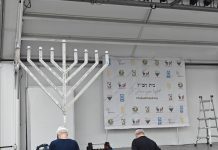Associated Press reporter Beth J. Harpaz was right when she recently wrote, “Good luck finding someone who can explain in 10 words or less what the War of 1812 was all about.” Some historians will say it was over “Impressment,” namely, that the U.S. declared war against England because the British were wrongfully seizing their deserting sailors off America’s ships. Well, the British had already agreed not to do it again before we declared war against England. Some will say that the “war was a last grasp by England to control its former colonies.” The British, however, were already involved in a “parallel war” in fighting the Napoleonic Wars in Europe and the British public opposed another lengthy war with America. Many historians say that the War of 1812 “was an attempted land grab of Canada by the U.S.” There is some merit in that argument as we had invaded Canada twice; the first time was during our Revolutionary War and the second time was shortly after our 1812 Declaration of War, however, the British won both times. Some say that the U.S. wanted to show the British our great strength in our “Second War of Independence.” Hardly, as Britain had some 600 ships while the U.S. had just 17 ships, including Old Ironsides, the most important ship in our fleet.
Were the British horrible in invading America and burning down our White House on August 24, 1814? Well, not quite. The reason they did it was in retaliation for our invading Canada and our burning down their White House. There should be no dispute that Andrew Jackson led the “final American Victory at the Battle of New Orleans,” aided by Jewish pirate Jean Lafitte. Well, not quite, as the war was already declared over but word had not yet reached Jackson and the British forces in New Orleans.
Who won the War of 1812? At best, it was a tie. British forces held some American land, including parts of Maine. Both sides agreed, however, to simply stop the war and go back to the original borders.






